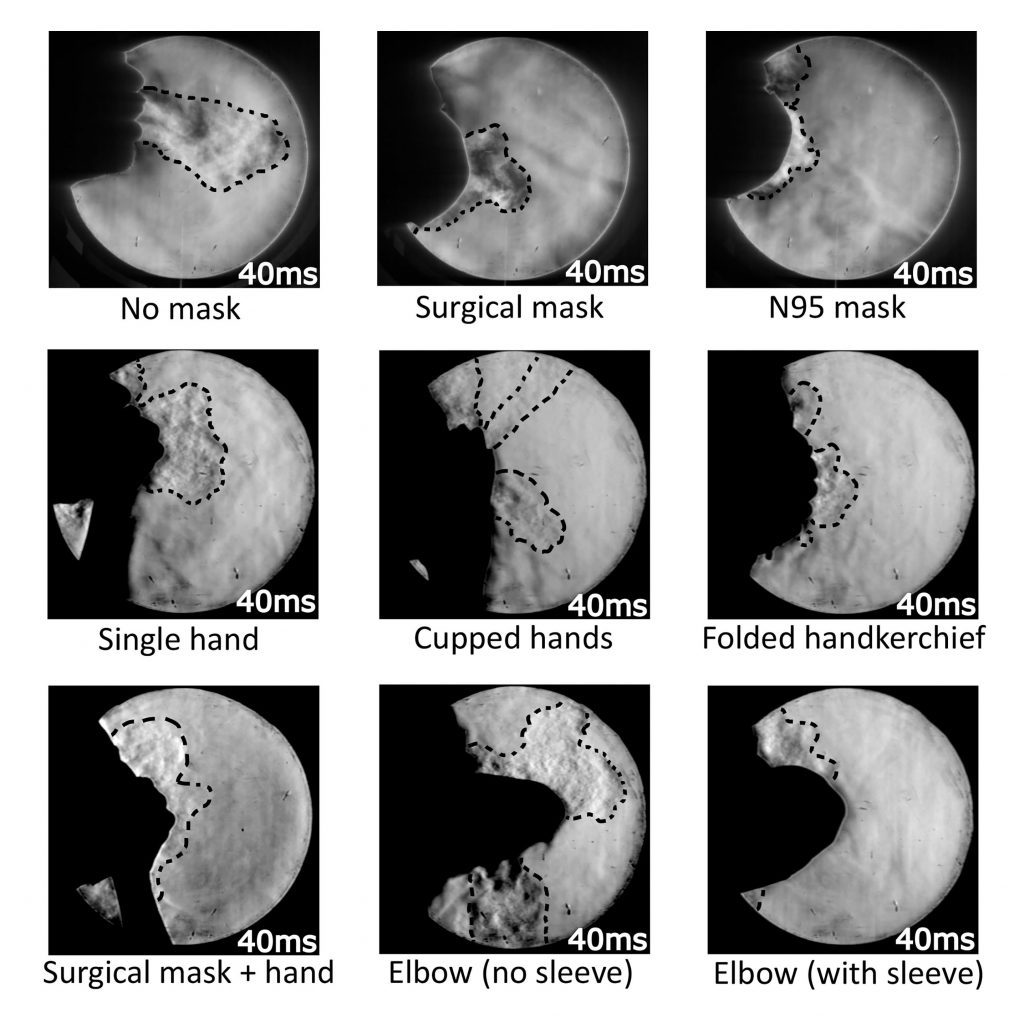From the Journal: Physics of Fluids
WASHINGTON, August 25, 2020 — Months into the COVID-19 pandemic, wearing a mask while out in public has become the recommended practice. However, many still question the effectiveness of this.

To allay these doubts, Padmanabha Prasanna Simha, from the Indian Space Research Organisation, and Prasanna Simha Mohan Rao, from the Sri Jayadeva Institute of Cardiovascular Sciences and Research, experimentally visualized the flow fields of coughs under various common mouth covering scenarios. They present their findings in the journal Physics of Fluids, from AIP Publishing.
“If a person can reduce the extent of how much they contaminate the environment by mitigating the spread, it’s a far better situation for other healthy individuals who may enter places that have such contaminated areas,” Simha said.
Density and temperature are intricately related, and coughs tend to be warmer than their surrounding area. Tapping into this connection, Simha and Rao utilized a technique called schlieren imaging, which visualizes changes in density, to capture pictures of voluntary coughs from five test subjects. By tracking the motion of a cough over successive images, the team estimated velocity and spread of the expelled droplets.
Unsurprisingly, they found N95 masks to be the most effective at reducing the horizontal spread of a cough. The N95 masks reduced a cough’s initial velocity by up to a factor of 10 and limit its spread to between 0.1 and 0.25 meters.
An uncovered cough, in contrast, can travel up to 3 meters, but even a simple disposable mask can bring this all the way down to 0.5 meters.
“Even if a mask does not filter out all the particles, if we can prevent clouds of such particles from traveling very far, it’s better than not doing anything,” said Simha. “In situations where sophisticated masks are not available, any mask is better than no mask at all for the general public in slowing the spread of infection.”
Some of the other comparisons, however, were striking.
For example, using an elbow to cover up a cough is typically considered a good alternative in a pinch, which is contradictory to what the pair found. Unless covered by a sleeve, a bare arm cannot form the proper seal against the nose necessary to obstruct airflow. A cough is then able to leak through any openings and propagate in many directions.
Simha and Rao hope their findings will put to rest the argument that regular cloth masks are ineffective, but they emphasize that masks must continue to be used in conjunction with social distancing.
“Adequate distancing is something that must not be ignored, since masks are not foolproof,” Simha said.
###
For more information:
Larry Frum
media@aip.org
301-209-3090
Article Title
Universal trends in human cough airflows at large distances
Authors
Padmanabha Prasanna Simha and Prasanna Simha Mohan Rao
Author Affiliations
Indian Space Research Organisation, Sri Jayadeva Institute of Cardiovascular Sciences and Research
